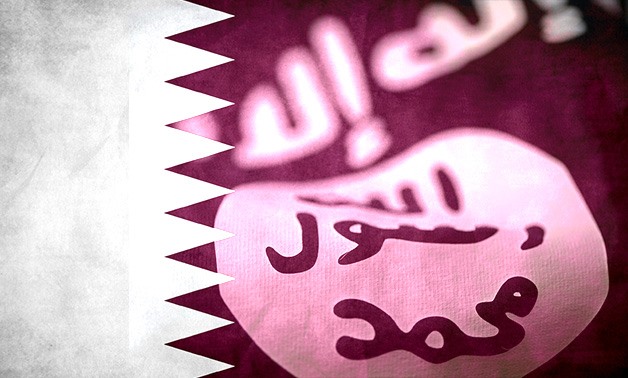
File photo
Let us begin with the most important facts.
In February 2015:
Egypt’s delegate at the Arab League accused the State of Qatar of being involved in activities supporting terrorism against Egypt.
Then a statement was issued on behalf of the General Secretariat of the Gulf Cooperation Council, expressing the Council's refusal of Egypt's ambassador accusation to Qatar of supporting terrorism.
The statement was broadcast on the official website of the Council and published by several Gulf news agencies before an official source told Asharq Al-Awsat that “It was issued hastily, and that “the Gulf states always affirm their standing and their full support for the Egyptian government and people. "
In December 2016:
Egyptian authorities have accused Qatar of harboring terrorists who are involved in the bombing of the Patriarchal Church in Egypt. In contrast, the Secretary-General of the Gulf Cooperation Council (GCC) said: "The GCC countries are concerned about accusing the State of Qatar of supporting terrorism.” In addition, the reference was made to Egypt’s accusations as “unacceptable.”
Yesterday:
Egypt, Saudi Arabia, the United Arab Emirates and Bahrain announced in a joint statement that they have included 59 individuals and 12 organizations with ties to Qatar on their terrorism watch list.
The four countries declared that in light of their commitment to fighting terrorism and stemming extremist ideology and its dissemination, they would place 59 individuals and 12 organizations with ties to Qatar on their terrorism watch list.
The announcement comes in the wake of several calls on Qatar to stop funding extremist organizations, and which was heightened as Qatar broke pledges it took when it signed on the Riyadh Agreement of 2013.
The four countries reaffirmed their commitment to intensify all efforts to combat terrorism and to establish security and stability in the region, emphasizing their mission to pursue individuals and groups that support terrorism.
The terrorism watch list agreed upon by the four countries includes: Qatari entities and institutions that use charity as a camouflage, while millions of dollars are turning to support terrorist groups and organizations that threaten the national security of neighboring states and countries in the region.
The statement added assertion that Qatar refused to hand over convicts or stop supporting and harboring those wanted, despite pledges and agreements in 2013 and 2014 and repeated requests.
"This list is linked to Qatar and serves suspicious agendas in an indication of the dual policy of declaring war on terrorism on the one hand, and financing, supporting and harboring the various terrorist organizations on the other."
The four countries reaffirmed their commitment to strengthening all efforts to combat terrorism and establish security and stability in the region, and affirm that they will not tolerate persecution of individuals and groups, and will provide all means of support at the regional and international levels.
They will fight terrorism, whatever its source, and will continue to work with partners all over the world to effectively reduce the activities of terrorist and extremist organizations and any entities that should not be tolerated by any State for their activities. "
What caused the three Gulf States to turn from supporting Qatar to absolute support for the Egyptian position?
The causes and what would happen next are in a later article.

Comments
Leave a Comment